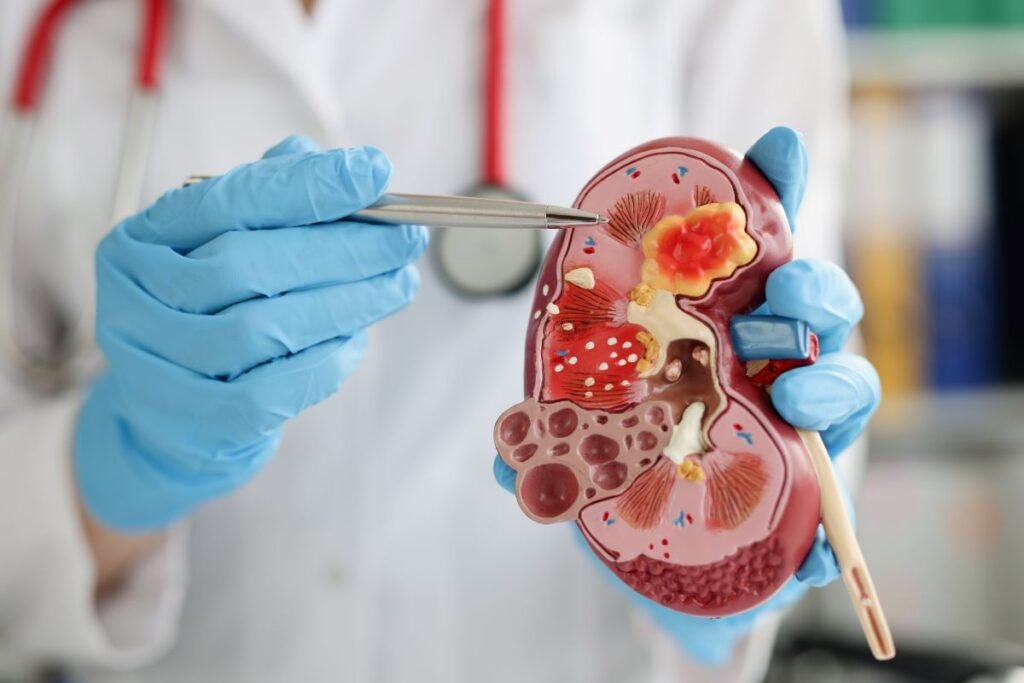Erectile Dysfunction
Introduction
Erectile dysfunction (ED) is a frequent inability to achieve or maintain adequate erection firm for satisfactory sexual intercourse. It can result in physical, psychological or lifestyle -related factors and affect a man’s confidence, relationships and overall quality of life. While sometimes erection issues are common, frequent or ongoing problems can indicate ED and need to pay attention to therapy.

Types of Erectile Dysfunction
Psychological erectile dysfunction
Due to stress, anxiety, depression, or relationship issues without physical damage.
Organic Erectile Dysfunction
Results from physical problems like diabetes, nerve damage, or poor blood circulation.
Mixed Erectile Dysfunction
Involves both psychological and physical factors contributing to erection difficulties together.
Situational Erectile Dysfunction
Occurs only in specific situations or with certain partners due to mental stress.
Causes of Erectile Dysfunction
- Diabetes damages the nerves and blood vessels required for a proper construction.
- High blood pressure reduces blood flow to the penis during stimulation.
- Heart disease affects circulation and obstructs blood supply to the tissues of the penis.
- Obesity contributes to hormonal imbalance and poor blood vessel health.
- Smoking damages blood vessels and reduces nitric oxide required for erections.
- Excessive alcohol intake suppresses the central nervous system and affects sexual function.
- Low testosterone levels reduce sexual desire and erectile power in men.
- Stress interferes with brain signals that trigger physical sexual reaction.
- Anxiety, especially performance can stop or delay an anxiety, erection.
- Depression reduces libido and affects brain's ability to stimulate stimulation.
- Some drugs can interfere with nerve signals and reduce blood flow.
- Pelvic surgery or spinal injuries can cause damage to the nerves responsible for erection.
Clinical features of Erectile Dysfunction:
Difficulty achieving erections
Unable to obtain an erection when sexually stimulated or stimulated.
Difficulty in maintaining erection
The erection does not last long for satisfactory intercourse.
Reduce sexual desire
Interest or noticeable decrease in desire for sexual activity.
Delayed or absent ejaculation
There is a lot of delay in ejaculation or it is not at all.
Anxiety during intimacy
Feel nervous or stressed during sexual performance or physical proximity.
Symptoms associated with Erectile Dysfunction
- Inability to obtain a construction during excitement.
- Difficulty maintaining construction in sexual activity.
- Reduced interest in sexual ideas or activity.
- Full disability for delayed ejaculation or ejaculation.
- Anxiety or stress related to sexual performance.
- Less confidence due to frequent erection failure.
- Issues of despair or relationship due to laxity.
- Morning erections become less frequently or absent.
Investigations in Erectile Dysfunction
- A doctor examines the penis, testicles, and nerves for abnormalities or signs of hormonal imbalance.
Used to detect underlying conditions such as diabetes, high cholesterol or low testosterone.
Helps identify signs of diabetes, kidney issues, or other health conditions.
Monitor erection during sleep to determine this, what is the reason physical or psychological.
Assesses blood flow in the penis, often after an injection to stimulate the erection.
Screen for depression, anxiety, or other emotional issues affecting sexual performance.
Endocrine measures testosterone and other hormones levels to examine problems.
